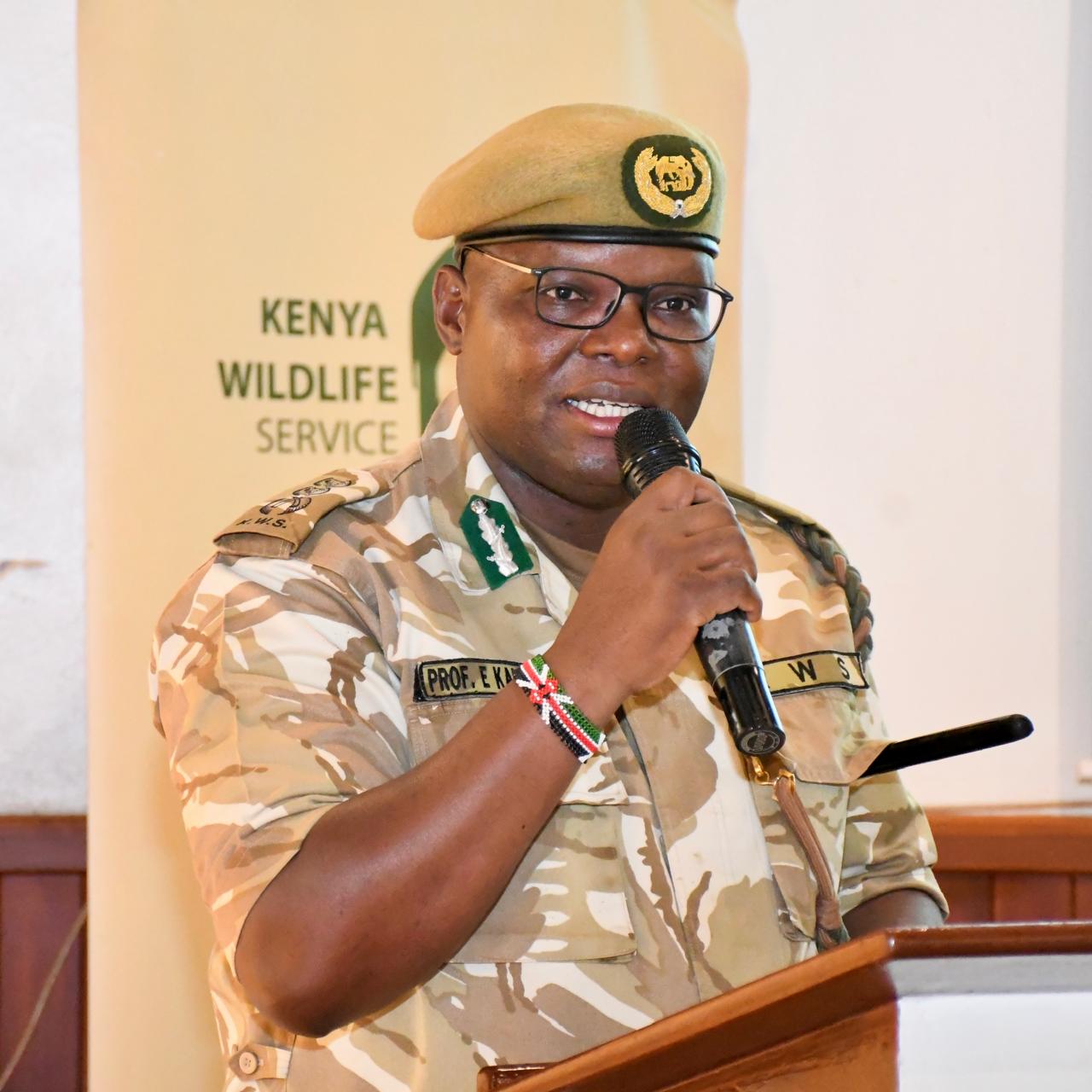
Google Maps: Most reviewed Parks in Kenya
Seventh on the list is the Lake Nakuru National Park located in Nakuru County.
KWS manages over 10,000 km of road networks.
In Summary

Audio By Vocalize

KWS Director General Prof. Erustus Kanga./HANDOUT
The government is rehabilitating roads inside 19 national parks at a cost of 1.3 billion to enhance the visitor experience.
KWS director general Erustus Kanga said the 3,272 km of roads are targeted for completion by June 28.
“Additionally, 10 Performance-Based Contracts (PBCs) are underway until June 2026, ensuring post-completion support and quality assurance for a full year,” Kanga said.
Kanga said only 30 per cent of the roads are actively maintained due to budget limitations as the service receives less than one per cent of the Road Maintenance Fuel Levy Fund.
He said the infrastructure development plan aims to expand access and ranger patrol routes and upgrade visitor infrastructure such as gates, signage, ablution and picnic sites.
The move also seeks to enhance ranger welfare in areas such as new accommodation, patrol bases and training facilities.
Under the ongoing initiative, electric fences will also be installed in human-wildlife conflict hotspots.
The total investment in ongoing infrastructure projects across KWS-managed areas currently stands at Sh 1.63 billion, covering road rehabilitation, bridge construction, fencing, ablution blocks and staff housing.
Kanga said the service, through strategic procurement and increased donor collaboration, KWS is now fast-tracking implementation.
Key upgrades at the park include 102 km of internal park roads being rehabilitated to allow for year-round access, even for non-4WD vehicles, and the replacement of three outdated park bridges with new high-clearance structures to withstand flooding and accommodate heavier vehicles.
The construction of modern ablution facilities at Nairobi National Park is ongoing at East Gate, Mbagathi Gate, and the Hippo Pools Nature Trail with an approximate total investment of Sh 170 million.
Nairobi National Park spans 117 square kilometers and is home to more than 100 mammal species, including lions, leopards, buffaloes and rhinos and more than 500 bird species.
The park is a stronghold for endangered species such as the black rhinoceros (critically endangered, with fewer than 5,500 globally), lions, cheetahs, grey-crowned cranes and the white-backed vulture, which are also ritically endangered and are facing severe population declines due to poisoning and habitat loss.
Other vulnerable species rely on the park’s unique savanna and riverine habitats.
Established in 1946, Nairobi National Park is the only national park in the world located within a capital city.
Additional classified road maintenance is being undertaken on106 km, supported by the Kenya Roads Board at a cost of Sh161.26 million.
Kanga said the service continues to advocate for increased funding to support maintenance of unclassified roads, which are crucial for patrols, wildlife monitoring and visitor access.
KWS has also rolled out a newly upgraded digital payment platform developed with the eCitizen team to resolve inefficiencies experienced during the initial rolloutof the eCitizen system.
It can be accessed on non-smartphone devices, enhancing inclusivity.
The system was launched in 2023 and currently, the pilot phase is ongoing.
“More than 60 per cent of visitors now book tickets in advance, improving traffic flow and service delivery. Nationwide rollout is scheduled upon successful conclusion of the pilot, prioritising full integration by 2025-26 financial year,” Kanga said.

Seventh on the list is the Lake Nakuru National Park located in Nakuru County.